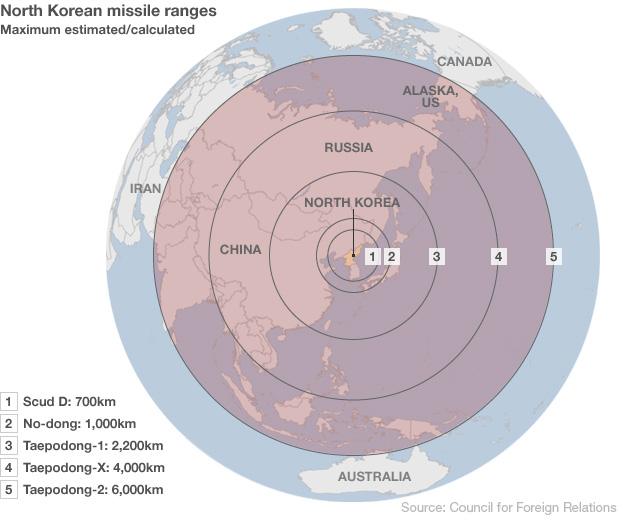North Korea: Neighbours on alert
- Published
Following the death of North Korean leader Kim Jong-il, regional powers have voiced fears over the nuclear country's future course.
Mr Kim had carried out his father's policy of "military first", building the world's fifth largest military force.
And in recent years, North Korea's series of ballistic missile tests and efforts to build nuclear weapons have fuelled regional tension. The country is reported to have test-fired a short-range missile shortly before Monday's announcement of Mr Kim's death.
North Korea is believed to be in possession of a number of missiles with varying ranges. According to the Council on Foreign Relations, some have the capability to carry nuclear warheads.

After the announcement of Mr Kim's death, South Korea placed its military on alert.
Relations between the two Koreas remain fraught following an exchange of artillery fire in November 2010 across the disputed western maritime border. It came just months after the sinking of a South Korean warship, the Cheonan, which killed 46 sailors.
North and South Korea are, technically, still in a state of war. The two countries never signed a peace treaty after an armistice ended their 1950-53 conflict.
They are separated by one of the world's most heavily fortified borders and both have strong military capabilities.

Elsewhere in the region, governments have also been watching developments closely.
China, North Korea's closest ally and its biggest trading partner, held phone talks with the US and South Korea on the importance of ensuring security on the Korean peninsula.
Meanwhile, the US has called on North Korea to pursue a "path of peace" and has promised to defend regional allies.
It maintains a military presence in South Korea, adding to the capabilities of other key countries in the region.